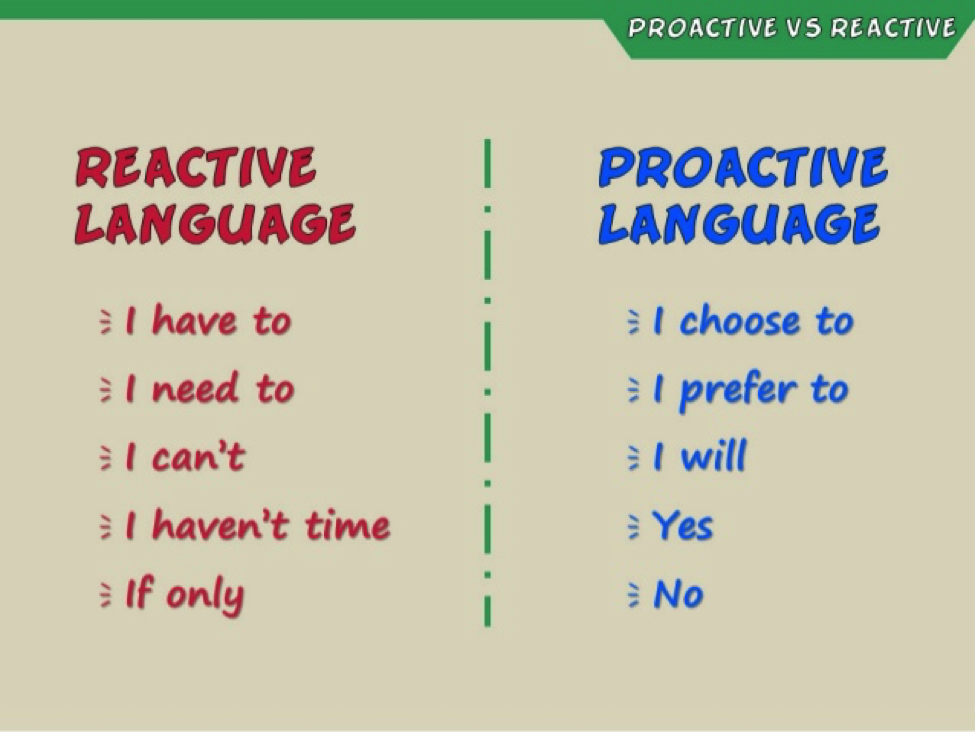Language’s Role in Being Proactive
One way to help you determine if you are coming from a proactive or reactive place is to look at language. Is the language you’re using empowered, meaning that you have control to do something about it, or is it passive, meaning that the power lies outside you? The words “Have” and “Be” can be key indicators to help you gain insight. The word ‘have’ often indicates that the responsibility lies outside the person whereas the word ‘be’ centers the responsibility within the person.
Take the following examples:
- If I could only have another $1,000, I’d…
- If I could only have a boss who would…
- If I could have a gym that was closer I would…
- If only I could have had the same opportunity as…
You can see how disempowering these statements are. It’s almost depressing to read them, right?
Now consider the “Be’s”:
- I can be more supportive…
- I can be more creative when it comes to problem solving…
- I can be more forthcoming…
- I will be a better partner…
It’s clear that these are empowered statements. The locus of control lies within the person saying them. There’s no guarantee that simply by saying them they will come true, but there’s a good chance that if a person is waiting for someone else to make them happen, they’re a lot less likely to happen and outside of his own control.
Here are a few other examples of reactive v. proactive language:


